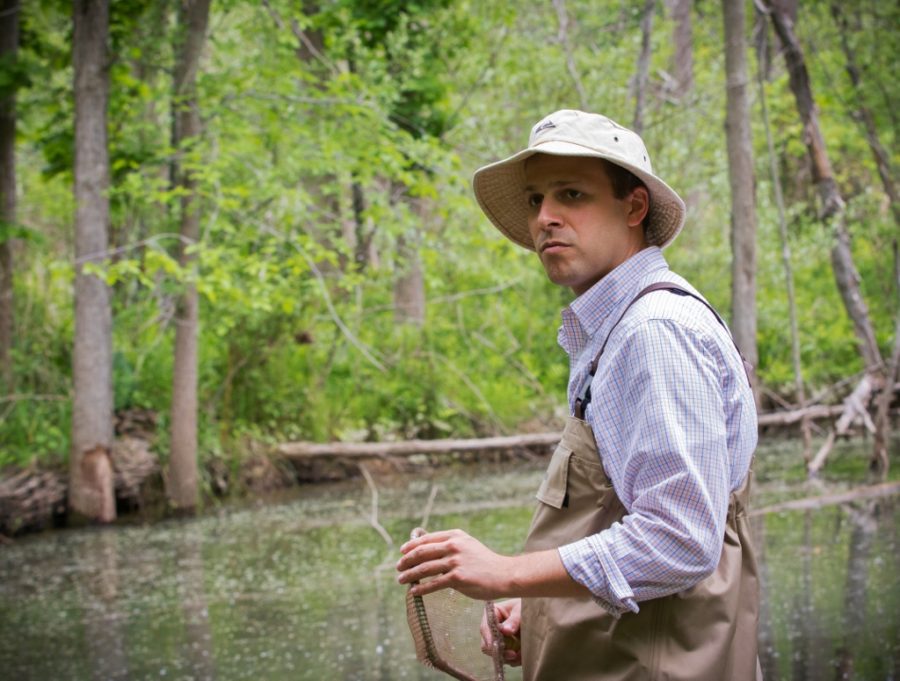Laboratory Highlight: Dr. Raffel’s focus on disease ecology
Dr. Thomas Raffel, Ph.D., runs a laboratory on campus centered on disease ecology.
Dr. Thomas Raffel, Ph.D., runs a laboratory on campus centered on disease ecology. His largest focus involves the relationship between temperature and infectious disease in cold blooded animals. Dr. Raffel was able to provide deeper insight into his work.
“The fundamental problem that we’re trying to solve is that when you see the temperature dependence of infection in something like a frog or lizard, their body temperature is the same as the outside temperature,” Raffel said. “So, if you get more infection at a warmer temperature is that because the pathogen was more infectious at a warmer temperature, or is that because the host was less resistant to infection at the warmer temperature? In the past, we’ve never really been able to disentangle those two things.”
However, a series of papers have been published in the last 10 years that describe the temperature dependence of organism performance being driven by the temperature dependence of metabolic rates. This is a foundational part of the metabolic theory of ecology.
“You can actually derive equations and use statistical parameters to describe host-parasite interaction based on these metabolic theory equations, part of the underlying principles of enzymatic kinetics,” Raffel said. “Part of what’s exciting about metabolic theory, which has become really big in ecology, is trying to predict what’s happening in the environment based on organisms, body sizes, and what their body temperature is. You can predict developmental rates on an individual scale, or on a whole ecosystem scale, such as how productive a forest will be. The results we are getting are implying that metabolic theory may be a more powerful framework than we thought.”
Experimental infections are performed in the lab in relation to a fungal disease that infects frogs all over the world. It is responsible for the extinction or near extinction of hundreds of species. The lab has 60 homemade incubators used to carry out these experiments.
“We have a big hoop house outside where we have multiple animals swimming around. Then we will drop in one infected animal,” Raffel described. “We did these experiments in the winter, so we were able to heat the tub up to whatever temperature we wanted. We could have 36 different population level replicants of our different temperature treatments and can follow the infection dynamics through time. In my lab it’s a melding of empirical experiments and theoretical models.”
Members Kyle Spengler, Jay Noelker and Declan McCreary said that using mathematical models as part of conservation efforts is among their favorite aspects of their work. This is something Raffel likes to make a point of.
“I teach two courses for undergraduates, one is ecological problem solving. Another is called medical parasitology. In both of those, as well as in my lab. I show students how important math is in biological sciences. Very importantly, I try to make it accessible to people while emphasizing that this is something anybody can do.” Raffel said.
Anyone interested in Dr. Raffel’s work or enrolling in BIO 4380 – Ecological Problem Solving or BIO 4320 – Medical Parasitology may contact him at [email protected].











